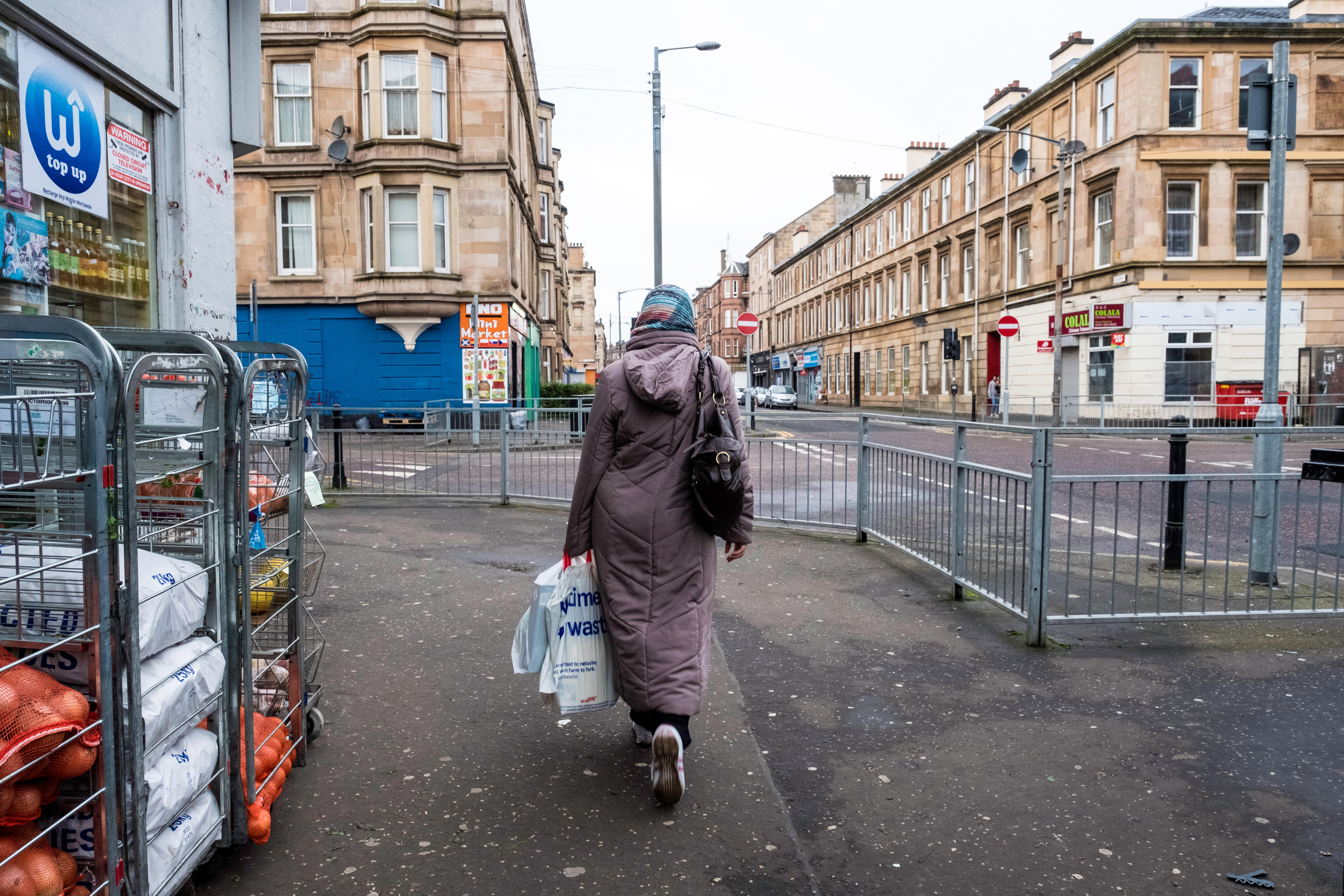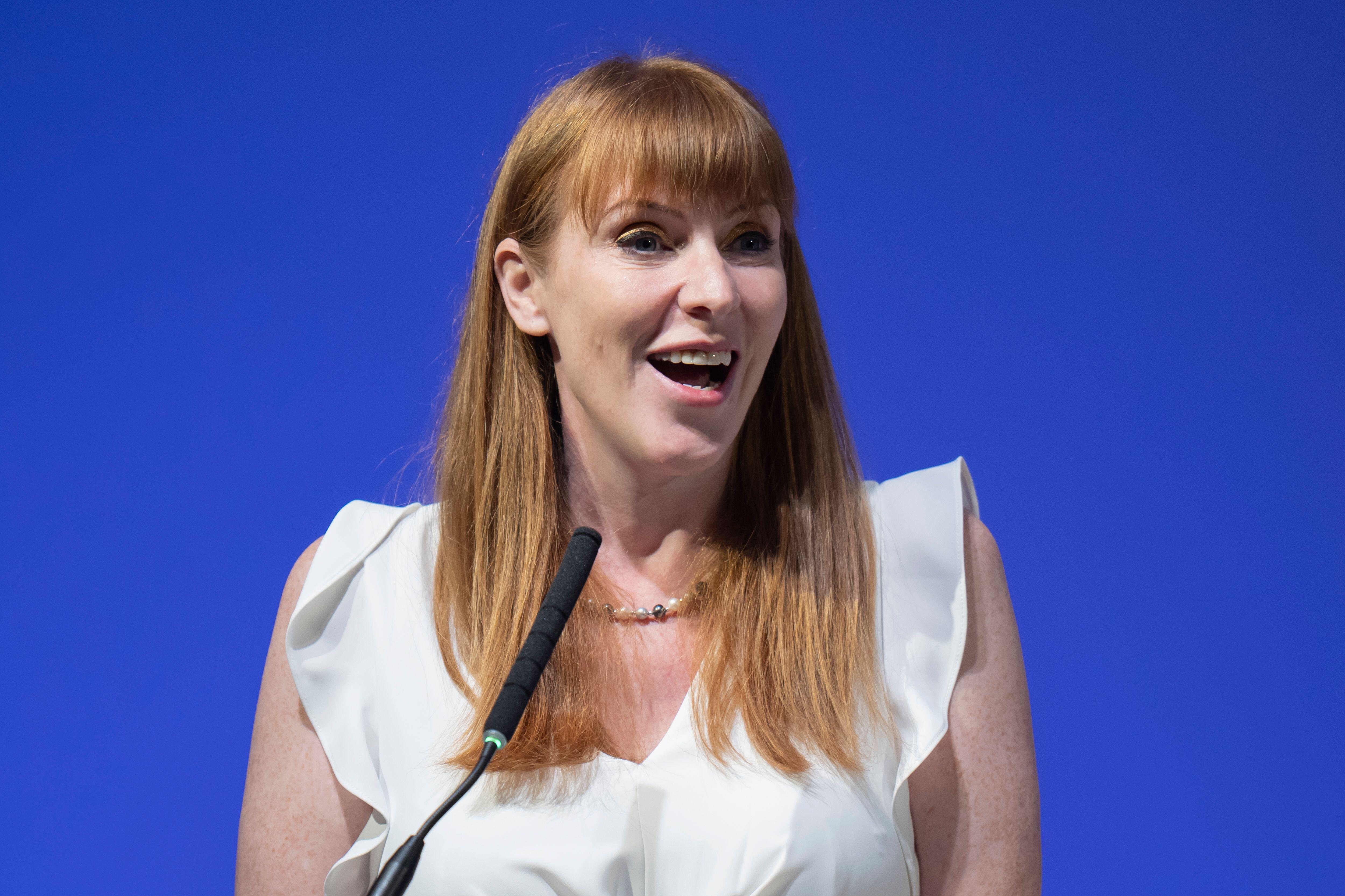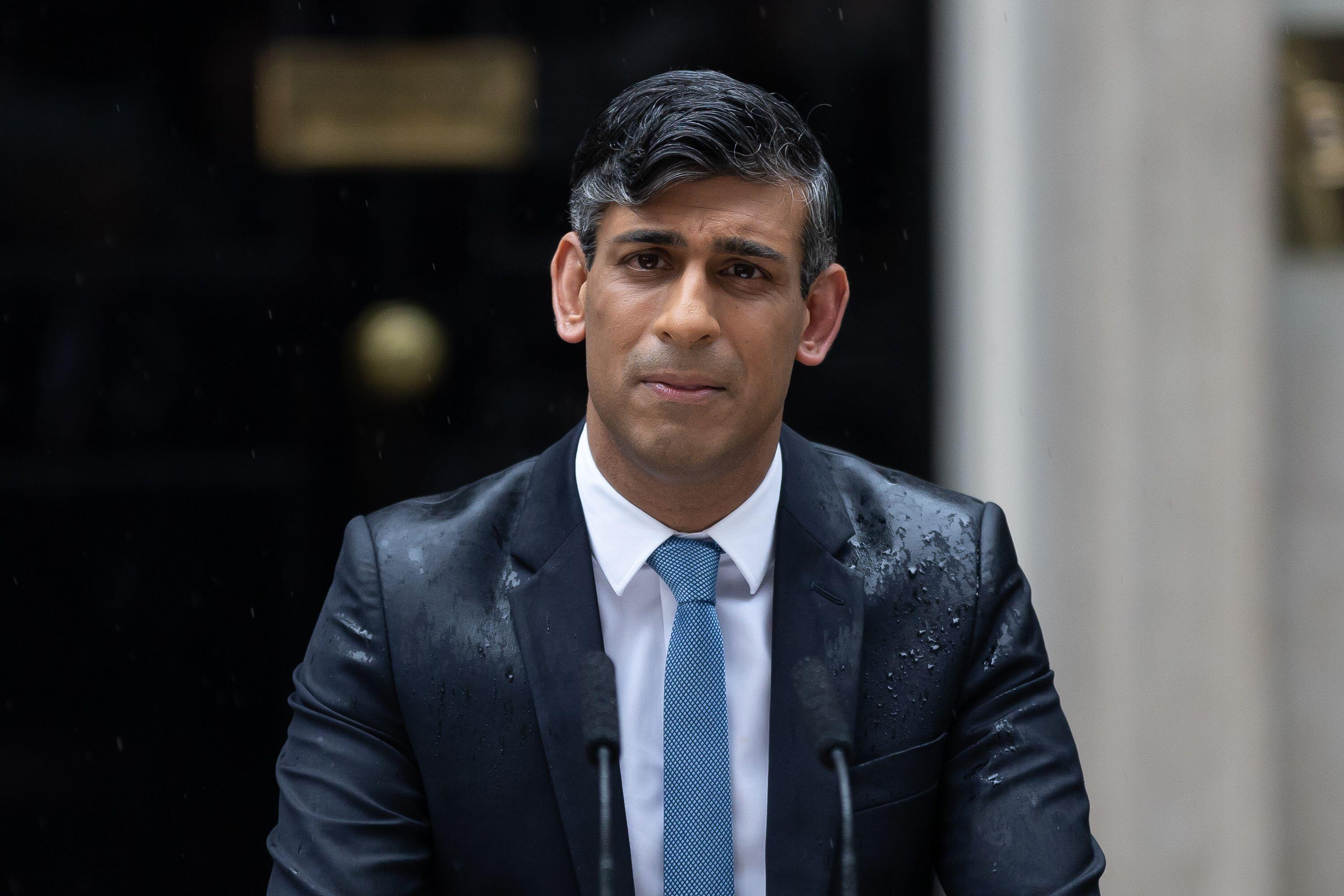World
Lord Ashcroft: What Scottish focus groups told me about the SNP and Labour

Our first focus groups of the general election campaign take us to Scotland, where Labour are hoping to reverse a decade of SNP dominance and boost their chance of a big majority at Westminster – hence Keir Starmer’s visit within hours of the election being announced. In Paisley, Dundee and Aberdeen 2019 SNP and Conservative voters told us – separately – what they made of their recent political dramas and how they saw the choice on 4 July.
A few of our more independence-minded participants sensed a southern conspiracy behind the allegations of financial impropriety inside the SNP: “How do these stories come about? Someone on the Conservative side has tried very hard to hurt her. Something had to dull the diamond or Scotland would have voted to leave;” “It’s coming from Westminster. It was to take attention off the partygate stuff.” More often, though, even previous SNP voters tended to believe there was something in the allegations. But if there was any wrongdoing, most rejected the idea that Nicola Sturgeon would have been in the dark about it.
All the groups had been underwhelmed by Sturgeon’s successor, Humza Yousaf, although they acknowledged the circumstances in which he took over made his job all but impossible: “I think he was just trying to fumble through. He was trying to pick up the pieces after Nicola left. Nobody was backing him;” “He was under pressure straight away for things that weren’t directly his fault, I suppose;” “At the beginning he seemed OK. He made a nice fresh change. But he became quite forgettable quite quickly;” “He’s probably a decent bloke but he was quite insipid. It didn’t ever feel as if he was going to make a decision and stick to it;” “He made these statements about hate crime but there was this YouTube video of him saying ‘the white people this, the white people that’. If it was us saying ‘the black people’ we’d be done for racism.” At the leadership election “it was such a poor choice. It was him or Kate Forbes from that Christian sect or that other woman”.
I don’t think he can rub two sticks together
Most participants had only a hazy idea of why the SNP’s agreement with the Greens had collapsed – whether disagreement over net zero policy, gender recognition, failure to negotiate, or something else altogether (“it’s never what they say it is. There’ll be something hidden, some infighting or disagreement over something.”) Either way, few were enthused by the upshot, the return of John Swinney: “He’s snuck in the back door again;” He’s not got a good track record. When he was in education he had no idea how it worked;” “I don’t think he can rub two sticks together;” “He feels like a drunk uncle that’s invited extra to your wedding. He’s there in your family, but you don’t really talk about him. And suddenly he appears and you’re like, ‘what’s he going to do now?’ He’s been there before at another wedding and effed up his speech, and now he’s come to yours and you think ‘I’d better keep an eye on him’.”
John Swinney | Alamy
Some saw a positive side to the outcome: “It needs a safe pair of hands, so I think it makes sense given the turmoil they’ve had. So it’s a fairly obvious choice. But I don’t find him the most inspiring;” “I think his heart’s in the right place. When he speaks, people actually listen. He’s got a quiet voice and doesn’t go all little boy and lose his temper the way other people do. I think he’s got the ability to bring things together.”
Though none in our groups would admit to agreeing with Forbes’s socially conservative positions, there was a division between those who thought her views should rule her out of public life (“to go into politics and come out with something like that… It’s not the 1970s, it’s 2024;”) and those who admired her courage (“she gets my vote for being honest because I don’t think enough of them are honest;” “she’s got a voice and an opinion and she’s not scared to stand up and say ‘I think this is right, or this is wrong’”).
Shops are shut, bins aren’t emptied, streets aren’t cleaned
When it came to the SNP as a whole, however, their previous voters were more critical than in any of our previous research in Scotland. Between them they could rattle off a list of what they saw as SNP achievements, including free university tuition, free bus passes for students, free school meals, scrapping bridge tolls, a nationalised railway, pay rises for nurses and free prescriptions (though some had their doubts about this policy: “last time I was there this guy pulls up in a Ferrari and strolls in and gets a free prescription. It doesn’t make any sense to me;” “The reason we’ve got free prescriptions is we pay more tax than down in England. They’re not really free.”) But they were also ready to point to holes in the SNP’s record, nationally and locally: “The industry in Dundee has gone. It’s de-industrialisation but I would like to have seen the SNP show more fight for it;” “With budget cuts, it goes further every year. Every time you go somewhere, something’s closed. When you walk through town you can literally see it – shops are shut, bins aren’t emptied, streets aren’t cleaned;” “We’re the drug death capital of Europe;” “The ferries – massively over budget;” “The LEZ is another tax on the motorist. You’ve got all the potholes and they’re still taxing the motorist;” “Most of the funding goes to Glasgow. We don’t see much of it in Aberdeen, even though we’re producing the money;” “I don’t mind trans people but when they start taking away women’s rights, saying we’re not to be called mothers, women don’t have to have a cervix – it’s just diabolical.”
 A shopper in Glasgow | Alamy
A shopper in Glasgow | Alamy
Many complained that Scottish public services were not what they should be. “The NHS is such a mess. Where I work we’ve got leaky roofs;” “I don’t know how it compares to England but it’s the worst it’s ever been;” “I’ve got a dentist’s appointment at the end of June. I’ve had to wait four months;” “There are no police either.”
The SNP’s recent scandals seemed to have prompted some to see the party’s record and motives in a new light: “With mobile homes and things like that, it was very disappointing. Someone must have known. And I waited nearly a year to get a scan, and for an urgent thing that was going on;” “I waited nearly a year to get a scan, and for an urgent thing that was going on;” “I feel like they’re only getting a wage. There used to be a very strong feeling when people were in politics, especially for the SNP, that they were doing it for people and doing it for the country. Now they’re doing it for themselves and the money;” “I think they’ve lost their way a bit. They haven’t done anything to grab your attention to take you with them on the journey they want to go on.” At the very least, several said they would not vote SNP again as automatically as they once would.
Many of our SNP participants also complained that the party had continued to pursue independence after the referendum to the exclusion of more urgent priorities. “Nicola focused too much on it and pulled away from actually running Scotland;” “She had the vote and the vote was no, but she kept going. How much money was spent that could have gone elsewhere?” “As soon as covid finished it went straight back to independence. ‘We’d better do independence because everybody’s behind us now.’ She could have said ‘right, we’ve come out of this now, let’s look at people who were furloughed, people who are homeless, food banks, the NHS…”. Those who still wanted independence as soon as possible thought it seemed unlikely in the near future: “I think for folks on the fence, there is enough going on to make them think, nah. I think they’ve missed the boat;” “They dropped the ball and it was kicked away while they were trying to pick it up.”
Labour was a working-class party and you’ve got a knight of the British empire running it
Some of our more disillusioned former SNP voters were prepared to switch to Labour at the general election – but the decision was not an easy one. Many had doubts about Keir Starmer and knew little if anything about the party’s policies; very few had heard about the plan for GB Energy, and none knew of the intention to base the new company in Scotland. Many doubted that Labour still stood for people like them: “For me, Labour was a working-class party and you’ve got a knight of the British empire running it. I don’t like it;” “He’s so wishy-washy, he keeps changing his policies. You can’t get a straight answer;” “Working in oil and gas, it would be a disaster for us if Labour got in. I would have to look at my livelihood more than anything else;” “He doesn’t exude confidence. If Trump wins, Trump’s going to walk all over him;” “He’s patently not got different policies from the Tories. Gaza, for example;” “I don’t think they’d do anything major. They would be a change, but keep it generally status quo.” Only one other Labour figure had caught their eye: “Angela Rayner is more working class, based on how she talks. When she fills in at PMQs she speaks well;” “She always looks like she’s ready for a night out. She’s one of the lads.”
 Labour deputy leader Angela Rayner | Alamy
Labour deputy leader Angela Rayner | Alamy
For most of those considering the idea, there was only one good reason to switch from the SNP: “I would vote for Labour only to oust the Conservatives;” “Realistically, it’s only ever going to be the Conservatives or Labour in power. The Tories have had quite a long shot at it and not been particularly successful. So to make my vote matter a bit more, I would vote Labour because they should be given a chance and it’s pretty much a two-party system.”
At the same time, some who were only too eager to see the back of the Tories wanted the English to do their dirty work for them: “I’m just hoping that a lot of people down south are pushing away from the Conservatives. They should do it themselves. It’s not our responsibility!”
Even many of those who were unimpressed with the SNP’s recent record often saw the party as the only means of securing a strong voice for Scotland in the House of Commons and (for those for whom this mattered) the only way to keep the flame of independence alive: “The SNP are still separate from Westminster. Labour and the Conservatives are more likely just to toe the party line;” “They wouldn’t be afraid of causing a ruckus down there to get the best deal for Scotland. If it was Labour and they started saying things, the main party would just say ‘quieten down, there’.” The same applied to Scottish Labour and Anas Sarwar: “They’re not really the leader because they’re actually being told what to do by someone else. It’s like being a prefect at school. They wouldn’t really be in charge. They would still be being told what to do.”
He’s steadied the ship. But that was after Liz Truss
Among our 2019 Tories, the view of the government echoed what we have heard in England. Some of them praised Rishi Sunak, but often only in comparison to what had gone before: “He’s trying to get inflation down, and he’s succeeded to a certain extent, trying to make the cost of living better;” “He’s steadied the ship. But that was after Liz Truss.” More often, they felt the overall record was just not good enough and that their own standard of living had suffered: “My mortgage went from 2.1% to 4.6% in January;” “Inflation is down but they say people will see the difference in their wage packets, but that’s not happening;” “There’s zero accountability. New people coming in – did we vote for them? They put all these changes in and then suddenly my mortgage goes up £500 a month. Why? To fix the economy. So suddenly the banks are getting far richer and I’m far poorer. It just started making me incredibly angry;” “The migrants seem to be doing pretty well in this country;” “They keep changing prime ministers. It’s a total shambles.”
 Rishi Sunak announces the general election | Alamy
Rishi Sunak announces the general election | Alamy
In a parallel dilemma with their nationalist counterparts, many former Conservatives were often divided between wanting a change in Westminster and sticking with the Tories to try and stop the SNP – especially in Aberdeen, where Labour came a distant fourth in 2019. Around half the former Tories in our groups said Sunak’s party were still in play for them, usually because of their doubts about Labour: “They flip flop all the time;” “National debt will go up. We’ll slowly sink into bankruptcy.” For the rest, “we need a change. They’ve had plenty of time. It’s not what I normally vote, but I just feel we need a change;” “At least they’ve kept a leader for more than five minutes;” “It might be a case of just give them a chance. They can’t do any worse than what’s going on now. It would take a lot to turn things round, and if it doesn’t happen, he’s out too;” “It was always that you never agree 100% with a party, but you go for the one you like most. Now it just seems like the one you hate least.”
If we were paying, they’d have it at the Ritz
Finally, the latest in our series of peculiar but sometimes revealing questions: if the SNP were a family, what kind of family would it be? “It’s a bit dysfunctional. John Swinney is the patriarchal figure who’s trying to be the peacemaker father and draw everyone together. Kate Forbes is the argumentative stepmother;” “It’s like an arranged marriage but where nobody agreed;” “It’s like they’ve got a bad choice of relative to take over the family business. They want to keep it in the family, but there isn’t really anyone suitable;” “When Nicola was there it would be like in the summer when folks sit in their front gardens and say ‘oh come over, we’re having a barbecue’. Now it feels a wee bit more secluded, something that’s harder to get into and understand what the vibe is. They’re not really knowing who their neighbours are. You maybe wouldn’t chap on the door.”
What would it be like if they all got together for Sunday lunch? “They’re in a tenement in Glasgow with a grandfather, mother, three children, no husband, and a 16-year-old with another baby on the way. Sunday lunch would be Buckfast and square sausage;” “If we’re paying, they’d have it at the Ritz;” “Nicola Sturgeon’s there but her husband never received his invitation;” “Mum and dad would be in the dining room, the kids would be in their bedrooms, the dog will be in the back garden with a bone, and the brother or sister in law will be trying to sneak an extra roast tattie in the kitchen. That’s what the SNP is like. They’re not a family anymore.”
What about the Labour Sunday lunch? “Salmon and strawberries. They’re a wee bit more upmarket than the SNP;” “They’d be in Islington eating sourdough bread at £9 a loaf. A lot of people saying, ‘do you want to try our elderflower wine?’” “There would be Lords and things with Starmer, him being a Sir and all that. There would be dignitaries at the table. He’s not working class, is he?” “Angela Rayner wouldn’t be there because she’s at her other house.”
And the Conservatives? “They’re in a stately home. It’s offensively big but they can’t afford to run it. There are no lights and there are holes in the roof;” “It would be like a mafia gathering;” “It would be like Shameless. Or Skins. Or The Kardashians;” “Remember when what’s his name got caught on camera? Matt Hancock. It’s like everyone in the family’s got a dark little secret.” What would they have for lunch? “Swan. And peasants.” Pheasant? “No, peasants. They’ve never had Buckfast or square sausage.”






